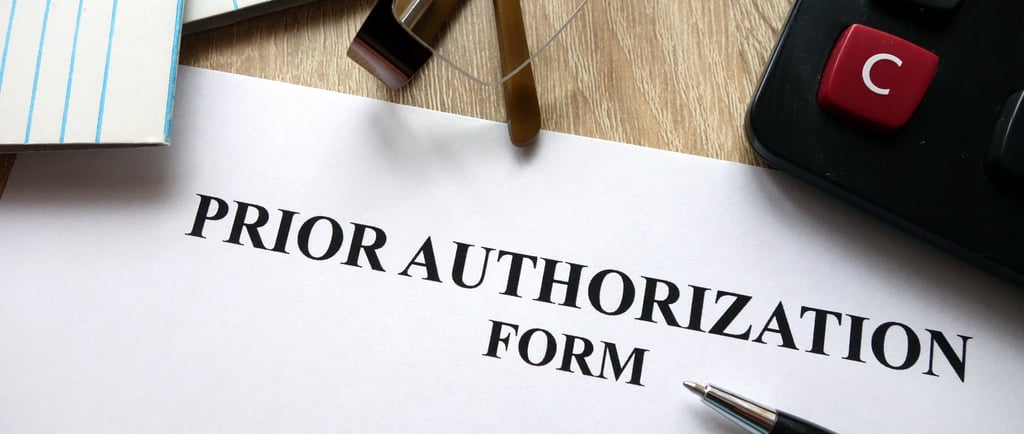The Financial Impact of Prior Authorization Delays
11/18/20251 min read


The Growing Challenge of Prior Authorizations
Prior authorization remains one of the most common—and most frustrating—barriers to timely care in today’s healthcare landscape. Originally intended to control costs and ensure appropriate care, the process has become increasingly complex and time-consuming. Every delay not only stalls patient treatment but also directly affects a practice’s bottom line.
In recent years, payers have expanded the list of services requiring prior authorization, creating a growing administrative burden for providers. The result? Longer approval times, higher denial rates, and increased frustration across the board.
How Delays Hurt Practices
Revenue Loss: Each delayed or denied authorization represents a potential loss in reimbursement. Services may be postponed, canceled, or never completed, leaving money on the table and disrupting predictable revenue flow.
Productivity Drain: Administrative staff often spend hours faxing forms, tracking requests, and following up with payers. This manual workload pulls valuable time away from other essential tasks, such as patient engagement and billing accuracy.
Patient Frustration: Patients expect quick answers and prompt care. When prior authorization delays treatments, it can lead to dissatisfaction, rescheduled appointments, or even patients seeking care elsewhere. Ultimately, these lost encounters impact both revenue and patient retention.
Streamlining the Process
The good news? Practices can significantly reduce prior authorization pain points by implementing smarter systems and workflows.
Use electronic prior authorization (ePA): Automating requests reduces paperwork, improves communication with payers, and accelerates approvals.
Assign dedicated staff roles: Specialized authorization coordinators can ensure accuracy and consistency, reducing errors that lead to denials.
Implement tracking tools: Real-time dashboards or workflow software help monitor status updates, flag delays, and prevent missed deadlines.
Why It Matters
Addressing prior authorization inefficiencies isn’t just about protecting revenue—it’s about ensuring patients receive the care they need without unnecessary barriers. Streamlined processes allow providers to focus on what truly matters: better outcomes, happier patients, and a healthier bottom line.
For help optimizing your prior authorization workflows and reducing revenue leakage, contact Triumph Medical Practice Solutions at 214-305-8805.